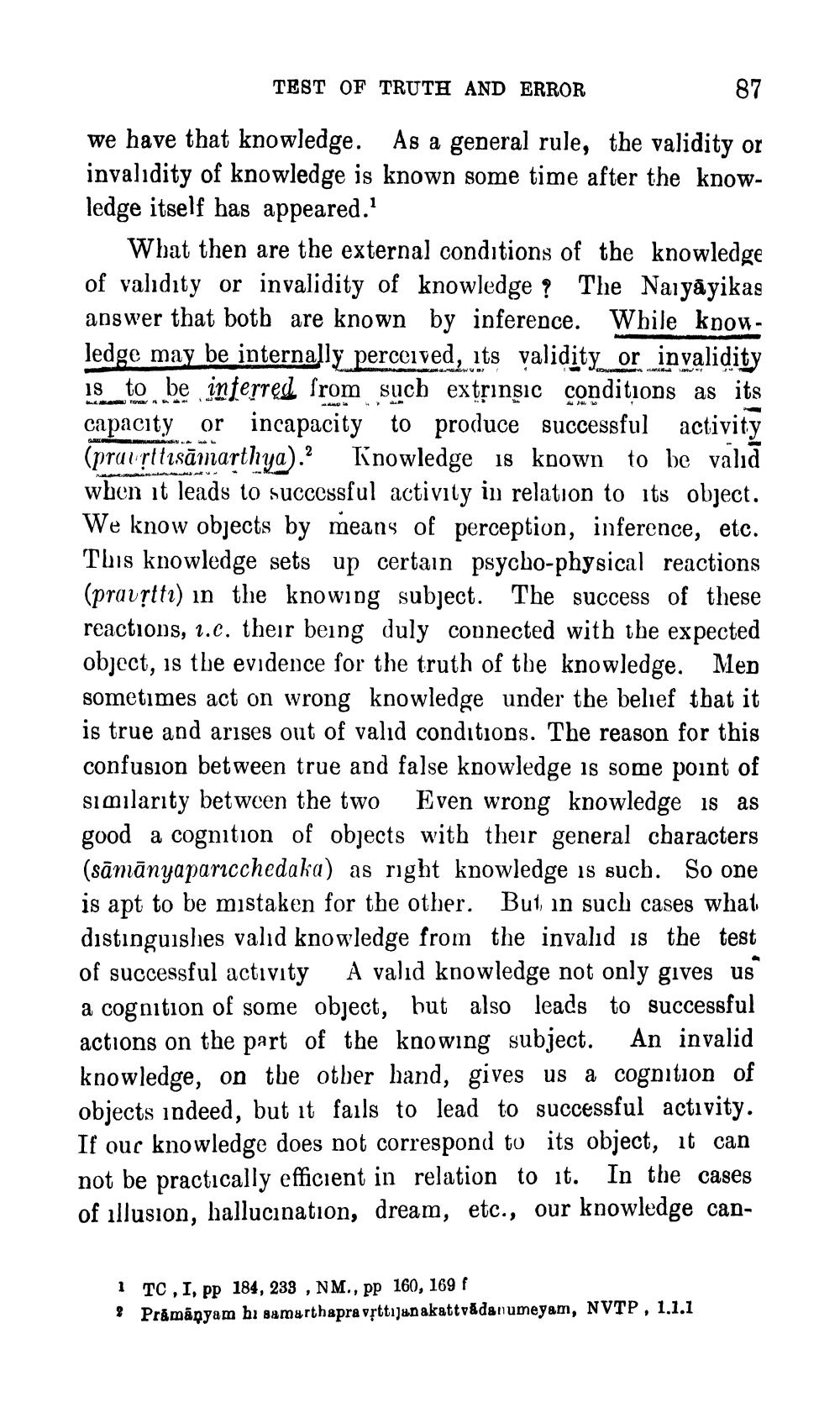________________
TEST OF TRUTH AND ERROR
87
we have that knowledge. As a general rule, the validity or invalidity of knowledge is known some time after the knowledge itself has appeared.'
What then are the external conditions of the knowledge of valıdıty or invalidity of knowledge ? The Naiyāyikas answer that both are known by inference. While knouledge may be internally perceived, its validity or invalidity 18 to be inferred from such extřinşic conditions as its capacity or incapacity to produce successful activity (pravsttısāmarthya). Knowledge is known to be valid when it leads to successful activity in relation to its object. We know objects by means of perception, inference, etc. This knowledge sets up certain psycho-physical reactions (pravșttı) in the knowing subject. The success of these reactions, 1.c. their being duly connected with the expected object, is the evidence for the truth of the knowledge. Men sometimes act on wrong knowledge under the belief that it is true and arises out of valid conditions. The reason for this confusion between true and false knowledge is some point of similarity between the two Even wrong knowledge is as good a cognition of objects with their general characters (sāmānyaparıcchedaka) as right knowledge is such. So one is apt to be mistaken for the other. But in such cases what distinguishes valıd knowledge from the invalıd is the test of successful activity A valıd knowledge not only gives us a cognition of some object, but also leads to successful actions on the part of the knowing subject. An invalid knowledge, on the other hand, gives us a cognition of objects indeed, but it fails to lead to successful activity. If ouc knowledge does not correspond to its object, it can not be practically efficient in relation to it. In the cases of illusion, hallucination, dream, etc., our knowledge can
1 TC , I, pp 184, 233 , NM., pp 160, 169 f ; Pråmāṇyam hi samarthapra vșttijanakattvådanumeyam, NVTP, 1.1.1




